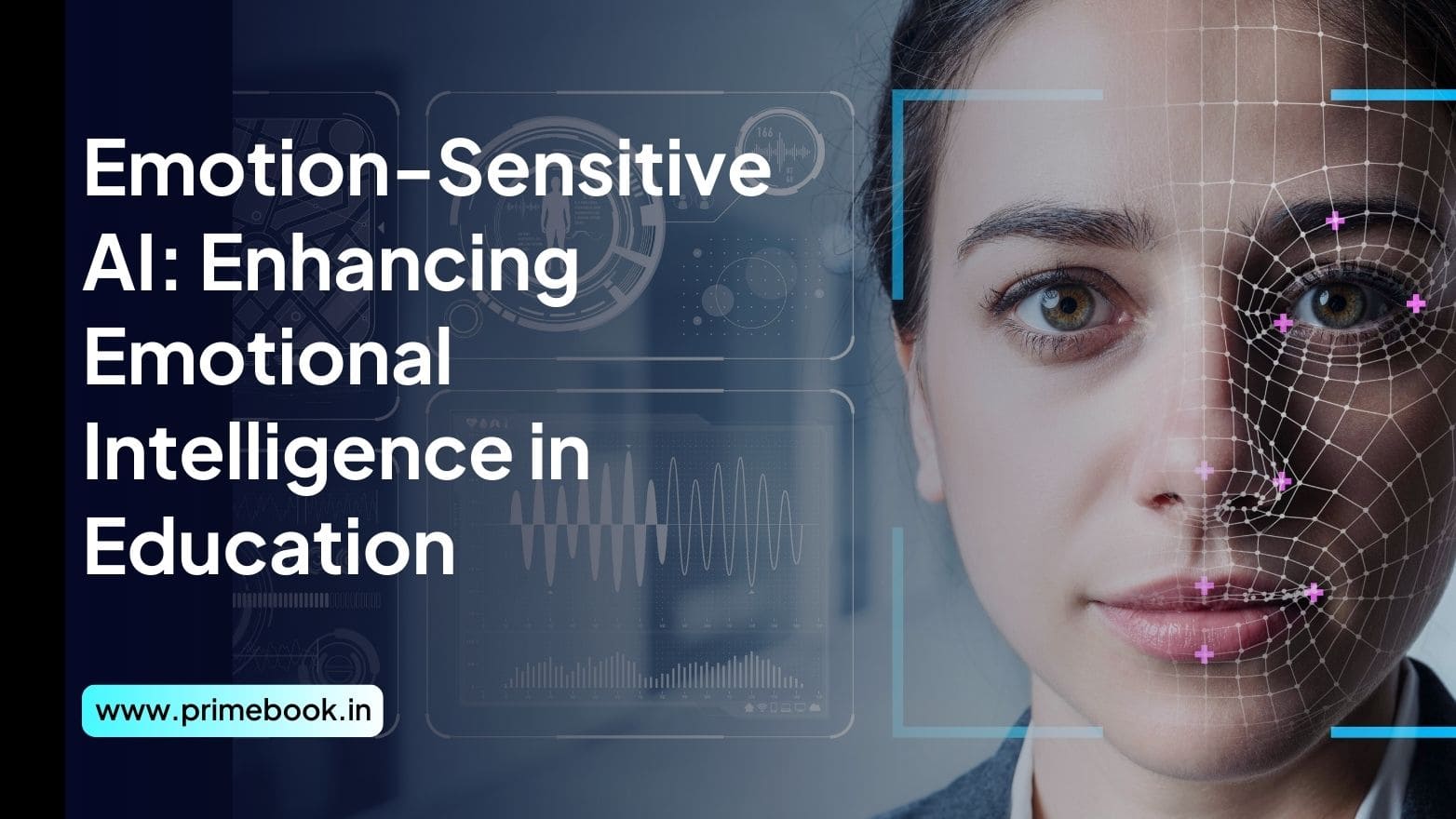Blogs / Trendy Tech Talks / Emotion-Sensitive AI: Enhancing Emotional Intelligence in Education!
Blogs / Trendy Tech Talks / Emotion-Sensitive AI: Enhancing Emotional Intelligence in Education!

Ananya Dasgupta
10 Dec 2024

Emotion-Sensitive AI: Enhancing Emotional Intelligence in Education!
While technology advancement and data analytics are at their peak in 2024, especially in the field of artificial intelligence, scopes of detecting, interpreting, and responding to human emotions have become apparent. It’s the emotion-sensitive AI that takes the stage for this purpose, not just in terms of business endeavour, but also for the improvement of the education system. How? This blog shall give you the requisite insights!
Understanding Emotional Intelligence in Education
According to the prominent psychologist, Daniel Goleman, emotional intelligence refers to an individual’s ability to identify, comprehend, manage, and influence emotions – of oneself and others! The key components of this intelligence are –
-
Self-consciousness, where you recognise your own emotions and their effects,
-
Self-regulation, where you regulate your emotions in a healthy way,
-
Empathy, where you understand other’s emotions and perspectives,
-
Motivation, where you channel emotions to achieve goals, and
-
Social skills, where you manage relationships to get people in the desired direction.
With regard to education, emotional intelligence is significant as it determines a student’s ability to –
-
Cope with the academic stress,
-
Stay motivated to overcome challenges, and
-
Collaborate and communicate effectively in group learning sessions.
Indeed, emotions play a vital role in the ways students absorb, process, and retain information. Studies affirm that emotionally intelligent students are more likely to succeed in their academic as well as social life. While stress, anxiety, and depression are common barriers to learning, emotional intelligence is what helps maintain a positive mental state and well-being. Students can herein develop effective relationships with their peers and educators, thereby fostering a cooperative learning environment.
Also Read: The Role of AI in Education
What is an Emotion-Sensitive AI?
Emotion-sensitive AI is typically a subset of artificial intelligence directed towards emotion recognition and emotion-responsive behaviour. By using a combination of sensors, machine learning (ML), and natural language processing (NLP), emotion-sensitive AI helps detect facial expressions, voice, texts, and other psychological signals. How?
Well, an emotion-sensitive AI can analyze smiles, raised eyebrows, and frowns. It can recognize the tone, pitch, and pace of speech to infer an emotional state, whether happiness, grief, or frustration. There are sentiment analysis algorithms that help introspect written communications like students’ messages or responses. Furthermore, the AI can read heart rate, skin conductance, and more biometrics to track emotional responses.
These AI systems can serve the education sector to –
-
Adjust the content delivery to the students specifically in terms of their emotional state.
-
Suggest coping strategies for students suffering from stress, anxiety, or depression.
-
Provide motivational feedback to the students.
The Role of Emotion-Sensitive AI in Classroom
Here are some ways an emotion-sensitive AI contribute to within a classroom setting.
Personalized Learning
The primary role of an emotion-sensitive AI is the personalization of the learning experience for students. The new and emerging AI-driven tutoring systems are the same as emotion-sensitive AI that helps adjust the difficulty of an assignment based on a student's recent emotional state. Then there’s the AI-powered adaptive learning platforms which use real-time data to modify lessons for a student and create a learning path that’s emotionally supportive but not cognitively challenging.
Teacher’s Aid
Emotion-sensitive AI can act as an “assistant” to teachers, empowering them to get meaningful insights into a student's latest mental state, thereby curating learning pathways that align with a student’s continuous progress. By tracking emotional cues, it can help in targeted intervention when a student needs extra attention. Nowadays, certain classroom management software works the same to help teachers customize their pedagogy.
Enhancing Students’ Engagement
As an emotion-sensitive AI can gauge emotional responses, it can help establish a more interactive and engaging learning experience in the classroom. If and when a student is bored or stressed for some reason, this AI can suggest various interactive learning activities, relaxation exercises, and motivational messages in between the lessons to help the student regain their focus.
Also Read: How to Gamify Classroom?
Benefits of Emotion-Sensitive AI in Education
Emotion-sensitive AI is ought to bring various benefits to the education system in recent times and here they go!
Elevated Student Well-Being
One of the biggest benefits of emotion-sensitive AI in education is the boost in students’ well-being. It can help provide early warning signs of emotional distress and mental health challenges among students, allowing educators to step in at the requisite time and mitigate the issues faster.
Improved Learning Outcomes
By addressing the emotional barriers, this AI can help students stay hooked on their lessons, persist through challenges, and experience a growth mindset. Students get to perceive failure as an opportunity to learn and thrive, subsequently performing better in the exams and deriving greater scores.
Strengthened Student-Teacher Relationships
As an emotion-sensitive AI enables teachers to understand and respond to a student’s emotional needs effectively, the establishment of trust gets easy. Students feel safe and understood, inculcating a strong sense of belonging in the classroom.
Also Read: Role of Virtual Reality in Classroom Education
Potential Challenges and Ethical Consideration
While there are immense potential benefits of an emotion-sensitive AI in education, there are potential challenges too which need to be addressed ethically.
1. The collection of emotional data, such as voice tone or facial expression, raises privacy concerns. Here, educational institutes must ensure that private data are stored securely and used responsibly. Guardians and students must have their consent before the collection and use of such data, as well as proper access to them.
2. While emotion-sensitive AI systems need to be efficiently trained to represent diverse groups, sometimes, if not trained comprehensively, may reflect biases in their responses. Hence, it’s important to train the AI with acute representation of diverse cultures, genders, and so forth.
3. While emotion-sensitive AI is a technology, over-reliance on it can undermine the development of students’ academic journey and their relationship with their teachers. This technology is meant to complement human educators, and should not replace human empathy.
Also Read: Cybercrime Awareness for Students
In a nutshell, emotion-sensitive AI is a powerful tool to enhance emotional intelligence in the education sector. By empowering educators to learn about the emotional state of the students and prompt responses accordingly, this AI can help create a more supportive, engaging, and impactful learning environment. However, its implementation requires ethical consideration to pave for an education system that’s emotionally nurturing and academically enriching.


 Related Blog
Related Blog









